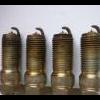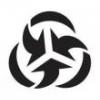Search the Community
Showing results for tags 'Billion'.
-
https://www.channelnewsasia.com/news/singapore/director-envy-asset-global-trading-charge-nickel-fraud-1-billion-14465512 He is let out on bail.... for 1 million? Going to flee...
-
with the ramp up in bus services and number of buses, hopefully this can be part of the redundancy for people in case MRT breaks down... Billion-dollar Bus Service Enhancement Programme completed with 1,000th bus added to fleet http://www.todayonline.com/singapore/billion-dollar-bus-service-enhancement-programme-completed-1000th-bus-added-fleet "SINGAPORE — The government’s billion-dollar Bus Service Enhancement Programme (BSEP) that was rolled out in 2012 to tackle bus congestion and long waiting times has wrapped up, as the 1,000th government-funded bus and 80th new bus service planned under the initiative hit the road. The five-year effort translated to a ramping up of bus capacity for about 70 per cent of bus services – or 218 out of 309 basic services – either through the deployment of higher capacity buses or the operation of more frequent bus trips, the Land Transport Authority (LTA) said on Saturday (Dec 6)."
- 159 replies
-
- 1
-

-
- billion dollar
- bus
-
(and 6 more)
Tagged with:
-
WASHINGTON: The Milky Way contains at least 17 billion planets the size of Earth, and likely many more, according to a study out Monday that raises the chances of discovering a sister planet to ours. Astronomers using NASA's Kepler spacecraft found that about 17 per cent of stars in our galaxy have a planet about the size of Earth in a close orbit. The Milky Way is known to host about 100 billion stars, meaning that about one of every six has an Earth-sized planet around it. The finding does not mean that all those planets beyond our solar system, or exoplanets, could be habitable, though it increases the chances of finding planets similar to Earth. In order to host life, and allow water to flow in liquid form, a planet must be at a distance from its star that allows surface temperatures to be neither too hot nor too cold. The Kepler craft detected possible exoplanets when they passed in front of their star, creating a mini-eclipse that dims the star slightly. During the first 16 months of the survey, Kepler identified about 2,400 candidates. Francois Fressin, of the Harvard-Smithsonian Center for Astrophysics, and his colleagues used the results to determine which signals were true and to list the exoplanets by size. They found that 17 percent of stars have a planet 0.8 to 1.25 times the size of Earth in an orbit of 85 days or less. About a fourth of stars have a super Earth (1.25 to twice the size of Earth) in an orbit of 150 days or less, with a same fraction having a mini Neptune (two to four times Earth) in orbits up to 250 days long. Larger planets are a much rarer occurrence. Only about three percent of stars have a large Neptune (four to six times Earth) and only five percent have a gas giant (six to 22 times Earth) in an orbit of 400 days or less. The researchers presented the analysis at a meeting of the American Astronomical Society in Long Beach, California. Separately, NASA's Kepler mission announced it had discovered 461 new possible planets. Four of them are less than twice the size of Earth and orbit their sun's "habitable zone," where liquid water might exist on the planet's surface and thus make life possible. The findings, based on observations conducted from May 2009 to March 2011, showed the number of smaller-size planet candidates and the number of stars with more than one candidate steadily rising. -AFP/ac
-
Verizon plans to announce deal early Monday, ending months of speculation ENLARGE Verizon has finalized its $4.8 billion deal for Yahoo that is expected to be announced early Monday. PHOTO: REUTERS By RYAN KNUTSON and DEEPA SEETHARAMAN Updated July 24, 2016 7:55 p.m. ET46 COMMENTS Verizon Communications Inc. has agreed to pay $4.8 billion to acquire Yahoo Inc., according to a person familiar with the matter, ending a drawn-out auction process for the beleaguered internet company. The price tag, which includes Yahoo’s core internet business and some real estate, is a remarkable fall for the Silicon Valley web pioneer that once had a market capitalization of more than $125 billion at the height of the dot-com boom. For New York-based Verizon, the deal simply adds another piece to the digital media and advertising business it is trying to build. The deal is expected to be announced early Monday. The news was earlier reported by Recode and Bloomberg. Verizon plans to keep the Yahoo brand, according to a person familiar with its plans. ENLARGE Yahoo’s chief executive, Marissa Mayer, is unlikely to have a prominent role—if any—under Verizon, people familiar with the matter said. She stands to make more than $50 million in compensation if she is terminated as a result of the sale, after earning over $100 million in cash and equity. When the bidding began in April, Verizon was the immediate front-runner with a market capitalization of roughly $228 billion and a plan for how to plug Yahoo into its upstart digital media business, which includes AOL properties it acquired last year for $4.4 billion. Verizon’s competition came primarily from private-equity firms such as Bain Capital, Vista Equity Partners, TPG and Advent International Inc., as well as a group led by Quicken Loans founderDan Gilbert. AT&T Inc. joined the bidding process later, but it wasn’t seen as a serious contender, people familiar with the matter said. Verizon in June submitted a bid of $3 billion, but that didn’t include Yahoo’s real estate and came before last week’s final round of bidding. Advertisement Verizon is building a portfolio of online content and aiming to monetize it via advertising. Its current assets include Huffington Post and TechCrunch, which it acquired in last year’s AOL deal, and its own mobile video app, called go90. Acquiring Yahoo will bring in millions more viewers from Yahoo sites like Finance, Sports and News. PREVIOUSLY A Look Back at Yahoo’s History Verizon to Acquire Yahoo for $4.8 Billion (July 24) Yahoo Posts Another Big Loss (July 18) Yahoo’s Mayer Stumbled After Secret Truce With Investor (June 17) Verizon Bids $3 Billion in Second Round (June 7) Yahoo Strikes Board Deal With Activist (April 27) Yahoo’s Troubles Mount as Bidding Begins (April 18) Verizon Tops Pack of Yahoo Suitors(April 17) Yahoo to Cut 15% of Staff, Explore Strategic Options (Feb. 2) Yahoo Shelves Alibaba Spinoff (Dec. 10, 2015) Yahoo’s Board Weighs Sale (Dec. 1, 2015) Yahoo’s Mayer Faces Morale Challenge(Nov. 23, 2015) Verizon also hopes to plug data derived from smartphones into AOL, and now Yahoo’s, digital advertising systems, and it is aiming to build a competitor to online advertising giantsFacebook Inc. andAlphabet Inc.’s Google. But a combined Yahoo and AOL would be far outpaced by its now far-larger rivals. Google and Facebook will account for more than half of the $69 billion U.S. digital ad market this year, according to estimates by data firm eMarketer. Yahoo’s share is expected to be 3.4%; Verizon properties including AOL hold an even-smaller 1.8% of the market, according to eMarketer. Yahoo’s hold on the market is also slipping. In 2014, Yahoo generated $2.54 billion in revenue from U.S. digital ads. That is expected to be $2.32 billion in 2016, or 8.7% lower, according to eMarketer. “The headwinds for all large players not named Google and Facebook are very real,” said Pivotal Research analyst Brian Wieser.“Noticeable growth only has a chance to come with ongoing investment, whether M&A or internal.” Last week, Yahoo said second-quarter revenue, minus commissions paid to partners for web traffic, fell 19%. This marked the sixth decline in the past seven periods and the steepest slump under Ms. Mayer. The Sunnyvale, Calif., company also said display ad prices fell 15% year-over-year in the second quarter, while search ad prices fell 8%. During a conference call with analysts, executives said video ad prices were under pressure because of an influx of video ad supply and “uncertainty” around the Yahoo sale process. Ms. Mayer also struck a different tone. While past calls were focused on growth, Ms. Mayer spent considerable time touting the company’s lower cost structure. Yahoo’s head count has shrunk about 15% this year to 8,800 employees. “The pace of cost cutting is significant,” wrote Bernstein Research analyst Carlos Kirjner in a July 19 note. “We suspect that there will be a price to be paid in the future for these fast, deep cuts, reflected in lower revenue growth.” Analysts are divided on the value of Yahoo’s core business. The decline in search revenue prompted Credit Suisse to cut its valuation of Yahoo’s core business to $7 billion, down from $8 billion. But that is more robust than Mr. Kirjner’s estimate of $3.4 billion. The Verizon deal is the first major step toward unwinding Yahoo. Next up is a trove of about 3,000 patents, which Yahoo is selling in a separate auction, that is expected to fetch more than $1 billion. The patents date back to Yahoo’s initial public offering in 1996 and cover key areas such as e-commerce, online advertising and search, including its original search technology. Yahoo also will need to figure out what to do with its stakes in Yahoo Japan Corp., majority-owned by SoftBank Group Corp., and Chinese e-commerce company Alibaba Group Holding Ltd., considered to make up the majority of Yahoo’s roughly $36 billion market value today.
-

Apollo Strikes $6.93 Billion Deal to Buy ADT
Porker posted a topic in Investment & Financial Matters
ADT Corp. agreed to be acquired by private-equity firm Apollo Global Management LLC in a deal that values the home-security company at about $6.93 billion, the latest sign market volatilityhasn’t brought deal making to a halt. The Wall Street Journal reported Monday that the firms were in talks and that a deal could be reported as soon as Tuesday. The all-cash price tag of $42 a share represents a 56% premium over Friday’s closing price. ADT will fold into Apollo’s Protection 1 subsidiary, an ADT competitor Apollo bought last year in a move into the alarm monitoring services industry. “Protection 1’s robust commercial presence will speed ADT’s expansion into the commercial sector,” said Timothy Whall, Chief Executive of Protection 1. Mr. Whall will lead the combined business upon the deal’s completion, expected by June.ADT, an offshoot of the former Tyco conglomerate, makes security products for residential customers and businesses, ranging from burglary alarm systems to wireless cameras and video surveillance. It has worked to position itself as a player in the so-called smart-home market, which aims to connect consumers wirelessly to various household devices. The company’s stock is down 30% in the past year, in part as a result of a broader downturn sparked by fears of slowing economic growth, among other factors. The transaction represents one of the biggest leveraged buyouts in recent years. ADT has more than $5 billion in debt, according to S&P Global Market Intelligence, and a so-called enterprise value of close to $10 billion.Apollo, based in New York, was founded by veterans of junk-bond pioneer Drexel Burnham Lambert. The firm is known for its willingness to make aggressive, sometimes contrarian, bets. The firm has been acquisitive as of late as many rivals have sat on the sidelines of the LBO market. Just this month, Apollo signed a deal to buy struggling education company Apollo Education Group Inc.—with which it is unaffiliated—for around $1.1 billion. The deal also signals that market volatility hasn’t derailed the merger market. Despite choppy equity, debt and other markets this year, activity so far in 2016 has been surprisingly robust in the wake of the record activity notched in 2015, when companies struck nearly $5 trillion of mergers. Other tie-ups this year include China National Chemical Corp.’s $43 billion deal for agricultural-products providerSyngenta AG and Shire PLC’s $32 billion planned purchase of BaxaltaInc. The companies said the combined company will generate $318 million in monthly revenue and total annual sales of at least $4.2 billion. In its most recent fiscal year, ADT posted $3.57 billion in revenue, up 4.9% from the previous year. Apollo said Tuesday that it would finance the deal through $4.7 billion in new debt and the issuance of $750 million in preferred securities. The merger agreement includes a “go-shop” period, during which ADT may actively solicit and consider alternative proposals. Barclays, Citigroup Global Markets, Deutsche Bank and RBC Capital Markets are serving as financial advisers to Protection 1. Goldman Sachs is serving as lead financial adviser to ADT, while BofA Merrill Lynch also is serving as financial adviser to ADT. ADT shares jumped 53% to $41.22 in premarket trading, while Apollo’s stock slipped 4.9% to $12.75. -
now you know why they want to shift the airbase..... the land probably worths tens of billions develop and develop and develop...............................
- 58 replies
-
- paya lebar
- 1 billion
- (and 7 more)
-
http://www.straitstimes.com/news/singapore/more-singapore-stories/story/over-2-billion-construction-projects-deferred-stagger-fo As suspected... wholly wrong implementation....WE ARE NOT AGAINST FW BUT FT especially sub-par PMET.... What is wrong with them... total disconnect... and our SME gonna take the brunt of this fiasco...
- 51 replies
-
- 4
-

-
- toyota
- foreign workers
-
(and 4 more)
Tagged with:
-
A Temasek Holdings Pte unit offered to buy Olam International Ltd. (OLAM) in a bid that values the commodity trader at S$5.3 billion ($4.2 billion), about 16 months after it helped stave off an attack by short-seller Carson Block. Breedens Investments Pte is offering S$2.23 cash per share, the Singapore-based company said today in a statement, a 12 percent premium to Olam’s last closing price of S$1.995. It is also making an offer for Olam’s outstanding bonds and warrants. Temasek, Singapore’s state-owned investment firm, became the largest investor in Olam, one of the world’s top three coffee and rice traders, after concerns raised by short-seller Block in November 2012 caused the stock to plummet. The offer has the support of Olam’s founding family and management, with some agreeing to sell a proportion of their shares to the bidding group. “Temasek is already a large holder of Olam so they probably know the business better than everybody else,” said Robert Aspin, the Singapore-based head of equity investment strategy at Standard Chartered Plc. “The fact that they are willing to pay a premium is indicative of the value that they see in the underlying business.” Olam has rallied 30 percent this year through March 12 in Singapore, compared with a 2.2 percent decline in the benchmark Straits Times Index. The stock, which closed as low as S$1.395 after Block’s attack, reached a near 17-month high of S$1.995 on March 12. An employee walks past the logo of Temasek Holdings Pte at the company's headquarters in Singapore. Group Support Breedens also has an agreement with a group including Kewalram Singapore Ltd., Olam’s founding family shareholder, and 10 Olam executives including Chief Executive Officer Sunny Verghese to not tender their shares until six months after the offer closes, Breedens said in a statement. All totaled they hold 52.5 percent ofOlam shares. Kewalram and three members of key management have agreed to sell a 5.6 percent stake in Olam in acceptance of the offer. Credit Suisse Group AG, DBS Group Holdings Ltd., and United Overseas Bank Ltd. advised Breedens. Breedens doesn’t plan to make any major changes to Olam’s businesses or terminate employees. It also intends to keep Olam as a listed company, unless the minimum float requirements aren’t met, it said. “We believe a successful offer will provide Olam with a stronger and more stable shareholder base to support Olam’s strategy and business model for the long term,” Breedens Director David Heng said in the statement. “We have invested in Olam over the years, and share a common investment philosophy to invest and build for the long term.” Block’s Bet Block said in November 2012 he was betting against Olam because he questioned the trader’s accounting methods and asset purchases, pushing the stock to a more than three-year low in December 2012. Olam rejected the assertions by Block and his research firm Muddy Waters LLC. Block today declined to comment. “Olam has been oversold following the issues raised by Muddy Waters and has bounced back strongly as the company addressed those concerns,” Alan Richardson, a Hong Kong-based money manager at Samsung Asset Management, said by phone before the announcement. As well as adding Olam shares after the Block allegations, Temasek also backed a $750 million bond sale by the commodity trader. Olam said in December 2012 it planned to sell bonds and warrants to address any “lingering doubts” about its finances. The investment firm agreed at the time to buy any rights not taken up by other investors. Olam is a supplier and processor of agricultural products and food ingredients across 16 platforms in 65 countries. Temasek holds 24.6 percent of Olam through its units Breedens and Aranda Investments Pte, and the founding family has a 20.2 percent stake, according to today’s statement.
-
Is this real? Hahaha..... very funny. http://en.paperblog.com/samsung-pays-apple...s-coins-294795/
-
Singapore Inc
-
So where did this 5 billion come from? Reserve or current operating budget? Can Vikram please ask this in parliament? And also, could the money be used to help the low income earners? http://sg.finance.yahoo.com/news/uk-singap...-154332727.html
-
The Straits Times The Straits Times Published on Jan 11, 2012 CapitaLand puts $4b in Chongqing project CapitaLand puts $4b in Chongqing project It is the property giant's largest in China to date By Kor Kian Beng CHONGQING - Singapore property giant CapitaLand has put down a $4 billion wager on the Chinese real estate market, signalling confidence in China even as many hold back amid fears of a recession this year. On Tuesday, the home-grown developer sealed an agreement with south-western Chongqing city to build an iconic mixed-used project designed by architect Moshe Safdie, the man behind the Marina Bay Sands integrated resort. Sitting on a 91,783 sq m prime riverfront plot between Chao Tian Men Square and Chongqing's traditional central business district in Jie Fang Bei, the 21.1 billion yuan (S$4.3 billion) development will be home to residential units, offices, shops, a hotel and serviced apartments, and is targeted to be completed by end-2017. With a total gross floor area of 817,000 sq m, the yet-unnamed project is CapitaLand's largest in China to date. The deal will help put the rising giant at the top of CapitaLand's markets, overtaking even Singapore. Copyright
- 8 replies
-
- billion
- investment
-
(and 1 more)
Tagged with:
-
By ERIK HOLM And SERENA NG The Treasury Department launched a sale of as much as $6 billion of American International Group Inc. stock, in a move that stands to further reduce the U.S. government's stake in the New York-based insurer more than three years after the company's government rescue during the financial crisis. Bankers were discussing a price of $29 a share with investors on Wednesday evening, according to people familiar with the matter, who also said the offering is expected to be completed and priced by Thursday morning. AIG, which has bounced back from the brink of collapse and expects steady profits in coming years, will itself buy as much as $3 billion of the shares the Treasury is selling. That buyback could help prevent Treasury's sale from weighing on AIG's share price. In addition, AIG will fully repay the government's remaining $8.5 billion preferred interest in another bailout-era vehicle that was collateralized by AIG's minority portion of Asian life insurer AIA Group Ltd. and other assets. The majority of the funds AIG will use in the transaction will come from the sale of a portion of its stake in AIA scheduled to close Thursday. The U.S. government bailed out AIG in 2008 with a record bailout that required up to $182.3 billion in taxpayer support. A large chunk of the money has been repaid, and Treasury needs to recoup $41.8 billion from selling its majority stake in AIG. "The people of AIG have achieved another significant milestone in our progress toward our goal that American taxpayers recoup their entire investment in AIG at a profit," said AIG Chief Executive Robert Benmosche. The Treasury said the sale is part of its "ongoing efforts to exit its investment in AIG, recover taxpayer dollars and wind down" the Troubled Asset Relief Program. Treasury named three different Wall Street banks to lead the share offering. It said units of Citigroup Inc., Credit Suisse Group AG and Morgan Stanley would jointly coordinate the offering. The last offering, in May 2011, which didn't go as well as AIG and Treasury officials had hoped, was led by Bank of America Corp., Deutsche Bank AG, Goldman Sachs Group Inc. and J.P. Morgan Chase & Co . In the months following that sale, Mr. Benmosche said there would likely be changes to the lineup of top underwriters. AIG shares have climbed 27% this year. Last month, the company reported fourth-quarter earnings that included a large tax benefit, reflecting expectations that the company will generate billions of dollars in profits in the coming years. AIG shares rose 40 cents Wednesday to $29.45 in New York Stock Exchange composite trading, before falling 45 cents to $29 in after-hours trading. At Wednesday's closing price, the stock has risen 54% from its 52-week low last October. Treasury currently owns about 77% of AIG. If Treasury again finds buyers for the shares for $29 each and AIG buys half and retires the stock, Treasury would reduce its common stake to about 70%. Treasury last sold AIG shares in May 2011 at $29 apiece. Officials put off further sales late last year when the insurer's share price sank well below $28.73 per share, the amount the Treasury Department has said it needs to get to break even on a sale, amid a broader rout in stocks.
-
One thing I don't like about our budget is the defence spending. 25% of our budget. For what??? And the stupid retired general still say EVERY CENT we spend in SAF is WORTH IT. What is he smoking??? I was recalled for my first reservist last year at age 36. I was a clerk during NS. My reservist unit is wargame center. They called around 50 of us, and most of us are 36 years old, first time reservist. Call us back for one week to do what? teach us how to use a stupid wargame simulation program and press button for the SAF trainees. So our reservist is first 3 days training how to use program which can be done in 1day. most of the time is spent idling.... Then the last 2 days, the trainess come in, then it is like a big wayang exercise. Play computer game like that. For that they recalled fifty 36 year olds and paid our companies one week of our wages. I don't understand why they don't call those young reservist who has just started their careers and probably cost much less. OR a better solution is ask those SAF trainees to spend one more day learning how to press the mouse themselves. I bet their pay is much less than a normal 36 year old. It is totally not cost efficient. It is like spending money because if I don't, next year my budget get cut. It is crazy. Just to save the SAF trainees one day of their time, they are willing to pay the same number of 36 year old reservists ONE WEEK of pay just to train us, so we can run the programs for them. How wasteful can you be? I am curious about the experience of other bros here who are in perhaps operation ready units. How "wasteful" or "frugal" is your SAF unit?
-
I would buy 300 of these... http://www.ford.co.nz/servlet/Satellite?c=...er&site=FNZ Get all the COEs in one bidding (willing to bid up to $150k each)... Wait two weeks.....paint them hot pink with Hello Kitty decals...... Then go down to the Comfort driving centre and pass one set of keys to the first 300 people that passed their tests on the 14th of February Just because that's the sort of person I am
-
http://yawningbread.wordpress.com/2011/04/...illion-bailout/ it sounds logical and those who chase properties and believe it is a inflation hedge in sinkieland will be in for surprise if this turns out.
-
Source: Bangkok post report Temasek's investment in Thailand shaken The Singaporean government's investment arm, Temasek Holdings, is expected to fight any attempts by TOT Plc to seek billions of baht in compensation from Thai telecoms companies in which it has holdings, say observers. TOT announced on Tuesday it will seek 214.7 billion baht in compensation from local telecom operators - including AIS, which is owned by Temasek - for unpaid access charges and losses resulting from improper policy changes made by past governments. The news, which shook the Thai share market, is likely to cast Temasek's Thai investments under a cloud, said a Post Today writer. Investments in the Thai share market by Temasek face a period of uncertainty, he said. Temasek Holdings has invested in the telecommunications, energy and hospital sectors here. Some believe its willingness to invest in Thailand was tied to the fortunes of former prime minister Thaksin Shinawatra. Once Thaksin was toppled from power, Temasek Holdings' investments in Thailand started to look less attractive to the company. Now, the findings of a committee appointed under Section 22 of the Joint Public/Private Venture Act 1992 could shake up Temasek's investments still further. The committee recommended that state-owned TOT sue Advanced Info Services (AIS), its mobile phone concessionaire, for over 70 billion baht in damages caused by amendments to its concession contract during the time Thaksin was in power. Singapore telecoms giant Singtel and Temasek Holdings stand to be affected, as they are the major shareholders in Shin Corp and AIS. If TOT sues AIS and wins, AIS may find it hard to survive, as it would have to pay a huge sum in damages. Finance Minister Korn Chatikavanij revealed that Singtel executives came to see him earlier last month to discuss the AIS issue. Mr Korn said he would treat the Singaporean investors fairly, as Singtel helped develop the communications industry in Thailand. However, Mr Korn is prodding Singtel to acknowledge that it knew about the contract amendments which benefited Shin Corp, AIS and others. "At that time [singtel] may have thought that contract amendments would not cause any legal problems. "I will take care of this issue in a fair manner, but I ask that [singtel] not deny knowing about the issue," said Mr Korn. When news leaked that the Section 22 committee (a committee set up by the ICT minister under section 22 of the Joint Private/State Venture Act of 1992 to come up with a resolution concerning AIS after the Supreme Court's Criminal Division for Holders of Political Positions last year brought down a judgement in the Shinawatra family's unusual wealth case) would find against AIS, the Thai stock market nose-dived, falling below the 1,000 points barrier. Some insiders claimed the selling orders originated from Singapore, and were intended to express displeasure with the Thai government, which investors thought was trying to punish AIS. Another rumour surfaced that several hedge funds based in Singapore and Hong Kong began to sell their holdings in companies owned by Temasek Holdings, including Singtel and AIS. Prime Minister Abhisit Vejjajiva met Singtel group chief executive Chua Sock Koong on Tuesday. Some believe the Singtel CEO carried a letter from Temasek Holdings seeking Mr Abhisit's opinion of foreign investors in the communications industry in Thailand. ICT Minister Juti Krairiksh wanted to table the Section 22 committee's conclusion with the cabinet on Tuesday for endorsement. Mr Korn asked for more time, as he wants to seek a compromise solution. The Finance Ministry said those who were involved in concession contract amendments which damaged TOT should be punished, which means the TOT board chairman and other high-ranking executives could be targeted. The Supreme Court's Criminal Division for Holders of Political Positions in February last year confiscated 46.3 billion baht that Thaksin and his former wife, Potjaman na Pombejra, acquired from selling their shares in Shin Corporation to Temasek Holdings. The court ruled that Thaksin had abused his power and had become unusually richer while holding the post of prime minister. It also found he abused his authority to benefit Shin Corp. Post Today did not believe that Singtel and Temasek Holdings should be punished as they were not directly involved in Thaksin's power abuse. The Finance Ministry insisted that TOT, as the concession owner, must be the party which initiates legal proceedings to recover the damages. The statutory period for taking action is one year after the Supreme Court handed down its verdict. If the ICT Ministry and TOT do not do anything to recover the losses, both could be sued for dereliction of duty. The Finance Ministry told the Section 22 committee that other telecom concessionaires including DTAC and True Move should also be sued for damages by CAT Telecom. Singtel and Temasek are likely to strongly resist any TOT threat to their investments - whatever they may think of Thailand since Thaksin was ousted from power.
-
Toyota posted a surprisingly large 209.4 billion yen ($2.2 billion) profit for their fiscal year, which concluded on March 31. The amount was a massive improvement over their previous annual net total, a 437 billion yen loss. Despite the profit, vehicle sales fell by 4.36% to 7.24 million. Even though the company sold 330,000 less units, company officials still expect the next fiscal year's income to improve by 48%, totaling 310 billion yen. The profit is nothing short of a triumph for Toyota, dogged by the aftermath of several recall scandals that affected at least nine million vehicles worldwide. Toyota is under fire in the U.S. where government agencies are investigating how the automaker announces recalls, and the timeliness of their actions. U.S. law stipulates that automakers must make notifications of safety problems in their vehicles within five days of discovering the issue. Many of Toyota's most popular vehicles have been the center of attention due to accusations of malfunctioning acceleration, braking, and steering mechanisms. Several lawsuits have already been filed against the company by consumers and shareholders, while the automaker has had to pay a $16.4 million fine levied by the U.S. government. Source: nytimes.com













